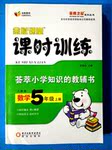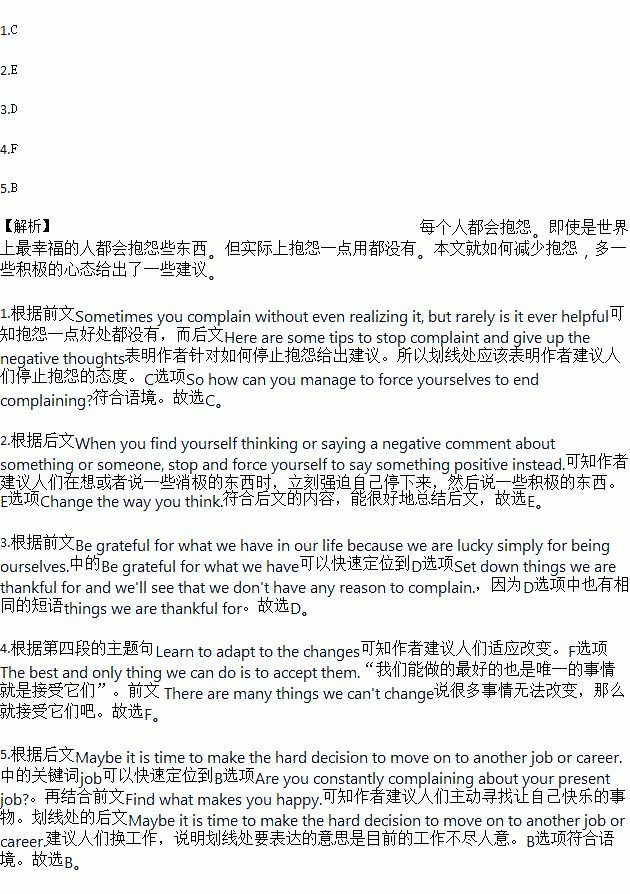题目内容
Every one complains. Even if you argue that you are the happiest person in the world, you still complain sometimes. Sometimes you complain: without even realizing it, but rarely is it ever helpful. 1.Here are some tips to stop complaint and give up the negative thoughts:2.When you find yourself thinking or saying a negative comment about something or someone, stop and force yourself to say something positive instead. Seek the help of a cheerful friend to change you when you complain and help you to see the positive in the situation.
Make a list of things we are grateful for.
We often complain about the things we don't have without noticing those things we already have. Be grateful for what we have in our life because we are lucky simply for being ourselves. 3.
Learn to adapt to the changes. There are many things we can't change.4. Always find the positive side of each situation, regardless of however difficult the situation is. With parents' and friends' support, we can survive any life changes.
Allow yourself to vent(发泄)your feelings every once in a while.
Constantly ignored negative thoughts could add up. If you are really going through a rough time, don't be afraid to share your feelings with a close friend or family member or see a therapist.
Find what makes you happy.
5.Maybe it is time to make the hard decision to move on to another job or career.Uncover what your biggest complaints are about and see if you can change the situation to make you happy. Choose happiness, focus on the positive, and be kind always!
A. Sometimes this list can be easy, full of hobbies you enjoy.
B. Are you constantly complaining about your present job?
C. So how can you manage to force yourselves to end complaining?
D. Set down things we are thankful for and we'll see that we don't have any reason to complain.
E. Change the way you think.
F. The best and only thing we can do is to accept them.
G. Make positive people friends.
 金版课堂课时训练系列答案
金版课堂课时训练系列答案 单元全能练考卷系列答案
单元全能练考卷系列答案 新黄冈兵法密卷系列答案
新黄冈兵法密卷系列答案
